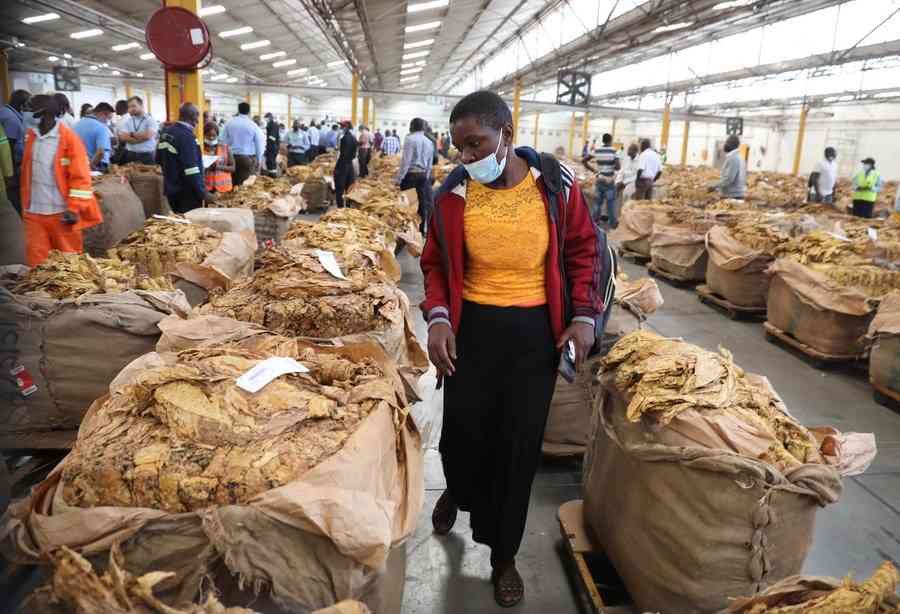
ZIMBABWE'S new land tenure reforms are set to unlock the agriculture sector's potential, but farmers say accessing affordable credit remains a significant hurdle.
Local banks are charging high interest rates of 17 to 20%, making farming ventures financially unviable and unsustainable for most.
A fortnight ago, President Emmerson Mnangagwa’s administration announced that holders of 99-year leases, permits and offer letters, issued during the land reform programme, would receive transferable and bankable document of tenure. Alongside this, the government also halted the allocation of new land.
Under the existing 99-year leases, permits, and offer letters, which do not grant exclusive land ownership, investment in the agricultural sector has dwindled. Financial institutions have long demanded a transferable, bankable title as collateral for loans.
As a result, many beneficiaries of the land reform programme, initiated 24 years ago by the late Robert Mugabe, have hesitated to make substantial investments on their farms.
The new land tenure document was developed after consultations with various stakeholders, including farmers’ organisations, the Bankers Association of Zimbabwe (Baz), the United Nations Development Programme (UNDP) and the World Bank.
Zimbabwe National Farmers Union president Monica Chinamasa told the Zimbabwe Independent that the land tenure reforms would attract investment in agriculture, which once served as the backbone of the country's economy.
However, she warned that banks should offer farmers more flexible credit terms.
- Land tenure reforms face credit hurdles
Keep Reading
“The change in the tenure of the land is a positive development. Now farmers will feel confident to develop the land, to invest in other things that can be done on the land,” she said.
“I am not sure if local banks can support local farmers probably because of sanctions and that they do not have the money to do so.
“When you are lending to farmers, you are supposed to lend at reasonable interest rates that are one digit, like 5% per year, but our local banks are charging 17% to 20%. No one can afford that kind of interest rate.
“Our produce will not be bought at such high prices. So where will the poor farmer get the money from? I believe banks are ill-equipped to lend to farmers because they do not have the money,” Chinamasa added.
Zimbabwe’s land reform programme, which led to the forcible seizure of farmland from white farmers, resulted in sanctions from the West, particularly the European Union (EU) and the United States (US), due to property rights violations.
Although the EU has softened its stance over time, the US maintains strict sanctions. This has strained Zimbabwe's crumbling economy, which is facing a ballooning national debt, currently estimated at over US$20 billion.
Edward Dune, deputy president of the Tobacco Farmers Union Trust, said the new land tenure reforms would encourage local banks to accept 99-year leases as collateral, a practice they had previously rejected.
“It has been over 24 years since the government has been collecting stipulated leasing fees from land reform beneficiaries,” he said.
“Earlier this year, the High Court ruled that a tenant who paid rentals for a similar period can now register the house in his name. They could consider it now fully paid for.
“Is there no similarity in the recently announced government tenure reform to allow registration of a bankable, transferable document that unlocks land market value to attract investment?
“In terms of best international standards, any citizen who informally stays on land for 20 years will get formal settlement papers.
“Land reform farmers have been clamouring for issuance of such tenure documents, which local banks need to accept as collateral going forward,” Dune further stated.
Baz chief executive officer Fanwell Mutogo told the Independent last week that there was extensive engagement between the institution and the government to revise the 99-year lease so as to make it bankable and transferable.
“The bankability of the 99-year lease has been a topic of discussion for several years. As an association, we have been actively involved in contributing to provisions of the 99-year lease. As Baz, we provided our input on the proposed improvements,” Mutogo said.
“We believe that following the extensive consultations, the government will finalise a position that reflects the collective insights and recommendations.”
Under the proposed land tenure changes, Finance, Economic Development and Investment Promotion minister Mthuli Ncube indicated that war veterans, women and youth would be given priority.
“All land held by beneficiaries of the land reform programme under 99-year leases, offer letters, and permits, will now be held under a bankable, registrable, and transferrable more secure document of tenure, to be issued by the Government of Zimbabwe to beneficiaries,” Ncube said.
“As such, beneficiaries of the land reform programme will now have enhanced security of tenure to the land they legitimately hold. The new policy will be informed by the following guidelines that include; a priority will be given to our veterans of the liberation struggle, youths and women.”
Notably, land transferred under the new system will only be transferrable among Zimbabwe’s indigenous people, primarily black Zimbabweans.
This stipulation aligns with the government's broader effort to maintain indigenous control over national resources.
In tandem with these reforms, the government also revealed that over 400 former white farm owners had been approved for compensation under the Global Compensation Deed (GCD), which will cover the value of improvements they made to their farms.
A total of US$20 million has been set aside for compensating land that was previously protected under Bilateral Investment Protection and Promotion Agreements (Bippas) with countries like Denmark, Switzerland, Germany, and the Netherlands.
In 2021, Mnangagwa's government endorsed the GCD agreement, committing US$3,5 billion to compensate white farmers who lost their land during the land reform process.











